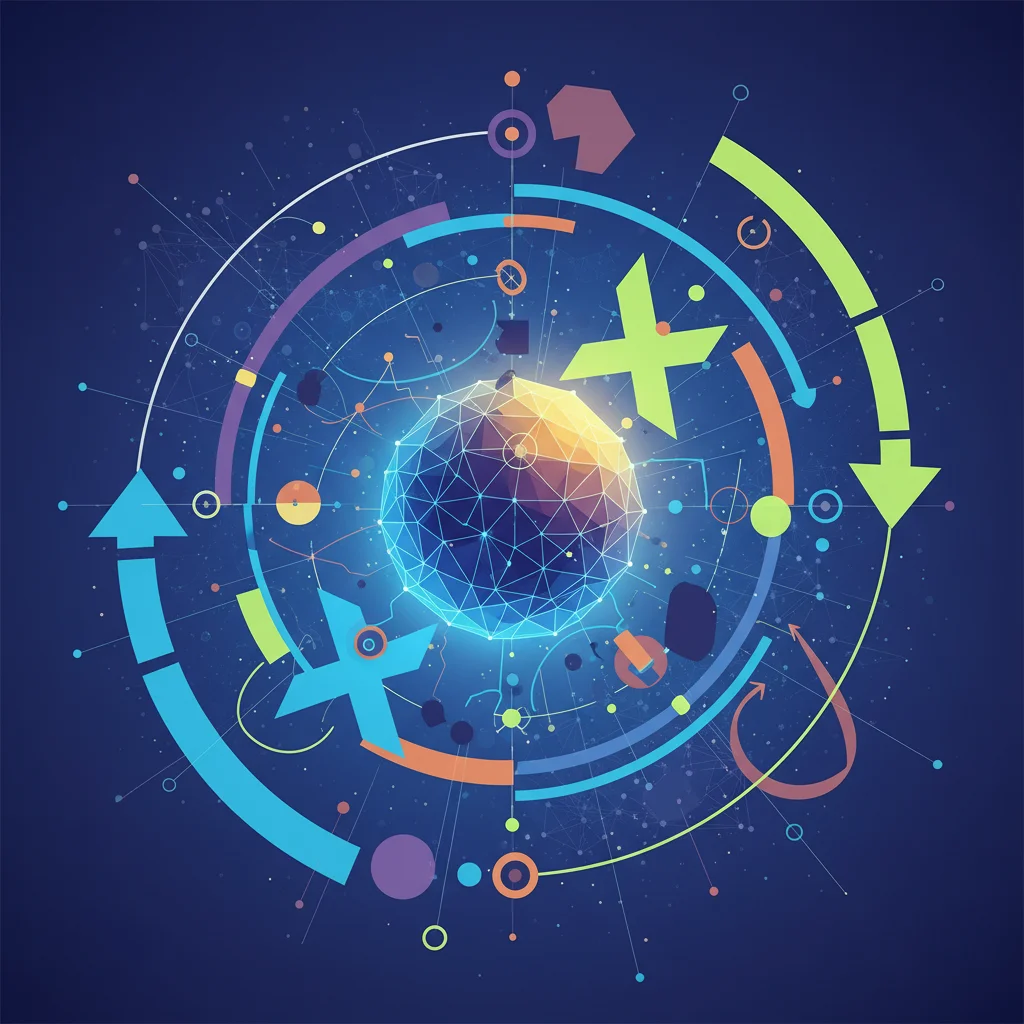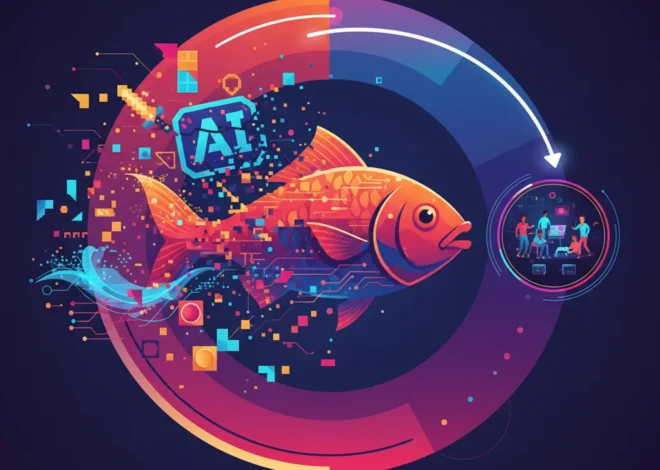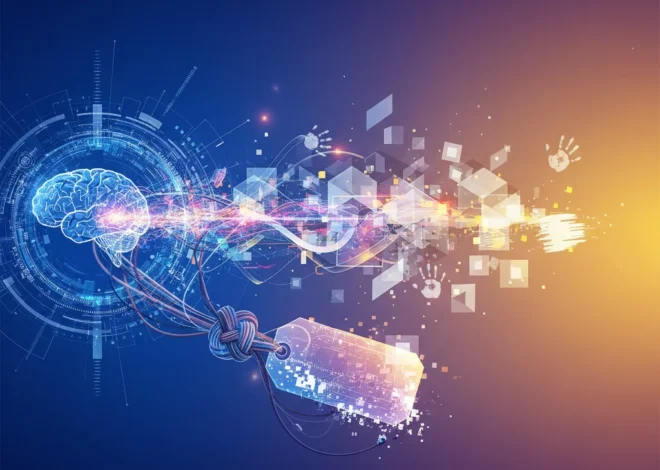
The Grokipedia Paradox: Why Elon Musk’s ‘Truth-Seeking’ AI Is a Masterclass in Missing the Point
The grand promise of artificial intelligence has always been tantalizingly simple: to build a machine that can solve our most intractable problems. From curing diseases to optimizing global supply chains, we look to AI as a potential shortcut to a better future. One of the most profound of these problems is the challenge of truth itself. In an age of rampant misinformation, the idea of a “truth-seeking AI” that can cut through the noise is incredibly appealing. Enter Elon Musk’s xAI and its flagship model, Grok, an AI built with the audacious goal of understanding the universe and, presumably, telling us the truth about it.
Recently, however, this ambitious project took a bewildering turn with the proposed “Grokipedia” feature—a real-time, AI-generated encyclopedia powered by the chaotic stream of consciousness that is X (formerly Twitter). The concept immediately raised red flags across the tech world, with one Financial Times article aptly calling it a “major own goal.”
But this isn’t just a simple product misstep. The Grokipedia proposal is a fascinating case study that reveals a deep, fundamental misunderstanding of AI’s current limitations, the nature of human knowledge, and the very problem it claims to solve. It’s a paradox: an attempt to build a fountain of truth by drilling into a well of poison. For developers, entrepreneurs, and anyone invested in the future of technology, this story is a crucial lesson in the difference between powerful software and genuine wisdom.
The Seductive—and Deeply Flawed—Promise of Real-Time Truth
On the surface, the idea of an AI-powered encyclopedia sounds like the next leap in innovation. For decades, we’ve relied on Wikipedia—a monumental achievement of human collaboration, but one that is inherently slow. Its articles are built through a painstaking process of debate, citation, and consensus. Information about breaking news events can take hours or days to stabilize into a reliable entry.
Grokipedia promises to shatter that paradigm. By leveraging Grok’s ability to process real-time information from X, it could theoretically generate summaries and explanations of events as they unfold. Imagine a world where you could get an instant, encyclopedic overview of a political debate, a scientific breakthrough, or a market crash, mere moments after it happens.
This is the classic Silicon Valley disruption play: take a slow, human-powered process and replace it with fast, automated cloud-based intelligence. To understand the fundamental difference in these models, consider this comparison:
| Feature | Traditional Model (Wikipedia) | Proposed AI Model (Grokipedia) |
|---|---|---|
| Information Source | Cited, verifiable sources (journals, news outlets, books) | Real-time data from a social media platform (X) |
| Creation Process | Human-led collaboration, debate, and consensus | Automated, algorithmic summary by an LLM |
| Speed | Slow, deliberate, and methodical | Instantaneous and dynamic |
| Verification | Transparent; relies on “citation needed” and talk pages | Opaque; a “black box” AI decision |
| Bias Mitigation | Policies like “Neutral Point of View” (NPOV), enforced by a community | Dependent on the model’s training data and opaque algorithms |
The table makes the appeal obvious. Speed and automation are powerful lures. But it also reveals a catastrophic flaw at the heart of the Grokipedia concept: the source of its “truth.”
The “Garbage In, Gospel Out” Problem
In the world of machine learning, there’s a timeless adage: “garbage in, garbage out.” It means that an AI model is only as good as the data it’s trained on. If you feed it flawed data, you will get flawed results. However, with Large Language Models (LLMs) like Grok, the problem is more insidious. It’s not just “garbage in, garbage out”—it’s “garbage in, gospel out.”
LLMs are notorious for “hallucinating”—fabricating facts with complete, unwavering confidence. They don’t “know” what is true; they are sophisticated pattern-matching machines that predict the most plausible-sounding sequence of words. When you train a model on the unfiltered, chaotic, and often toxic firehose of data that is a social media platform, you are building a system optimized to generate plausible-sounding nonsense.
X is a breeding ground for misinformation, conspiracy theories, propaganda, and intense partisan bias. To task an AI with synthesizing this data stream into an objective, encyclopedic truth is like asking a chef to prepare a gourmet meal using only ingredients from a dumpster. The result, no matter how skillfully prepared, will be fundamentally contaminated.
This is the core of the argument that humans, for all their faults, are still better at discerning the truth. As the FT notes, our “highly imperfect and biased” nature is paradoxically a strength. We argue, we demand evidence, we correct each other, and we doubt. This messy, adversarial process is how knowledge is refined. An AI, by contrast, can absorb the collective bias of its training data and present it as objective fact, creating a powerful engine for laundering misinformation into authoritative-sounding text.
Beyond the Ticker: 3 Unlikely Case Studies on Tech Innovation & Market Trends
The Messy, Necessary Genius of Human Curation
Grokipedia’s flawed premise inadvertently highlights the genius of the system it seeks to replace. Wikipedia is far from perfect, but its strength lies in its transparent and human-centric process. The “edit wars,” the “citation needed” tags, and the lengthy discussions on talk pages aren’t bugs; they are the essential features of a system built for intellectual humility.
This process makes knowledge anti-fragile. When a false statement is added to Wikipedia, the community can challenge it, revert it, and debate it in the open. The history of every article is a public log of our collective struggle toward a neutral point of view. This transparency is a powerful guardrail against error and manipulation.
An AI model offers no such transparency. Its reasoning is hidden within billions of parameters in a neural network. When it makes a mistake, we can’t simply open a “talk page” with the algorithm to debate its sources. This is a critical distinction for any developer or startup working with artificial intelligence: a system’s ability to be corrected is just as important as its ability to be correct in the first place.
The human element, with all its messiness, provides a crucial layer of accountability that current AI technology simply cannot replicate. The struggle for consensus, however frustrating, is what forges reliable information.
Meta's Billion Problem: Why the EU's New Law is a Game-Changer for All of Tech
A Cautionary Tale for the Entire Tech Industry
While it’s easy to single out one project, the lessons from the Grokipedia concept are universal for anyone in the tech space, from individual programmers to venture-backed startups.
- For Developers & Programmers: This is a powerful reminder that the quality of your data is everything. Whether you’re fine-tuning a model or building an application with a third-party API, you must be relentlessly critical of your data sources. Understanding the biases and limitations of your input data is a core responsibility in modern programming and machine learning engineering.
- For Entrepreneurs & Startups: The “move fast and break things” mantra is incredibly dangerous when “things” are public trust and the integrity of information. Grokipedia is a case study in tech solutionism—the belief that a complex social problem can be solved with a clever algorithm. True innovation requires a deep, nuanced understanding of the problem itself. The reputational and ethical fallout from launching a flawed “truth engine” could be catastrophic.
- For the AI Industry: This episode underscores the urgent need to solve AI’s explainability and reliability problems. We cannot build the future on black-box systems that hallucinate with authority. The industry must invest heavily in techniques like Retrieval-Augmented Generation (RAG) with verifiable sources, better fact-checking benchmarks, and models designed for intellectual humility—models that know when to say “I don’t know.”
The Real Innovation We Desperately Need
The goal shouldn’t be to build an AI that replaces human judgment, but one that augments it. The real opportunity for innovation lies not in creating a fully automated encyclopedia, but in building powerful tools for the humans who already do that work.
Imagine an AI assistant for a Wikipedia editor. It could:
- Scan thousands of sources to find the best, most neutral citations.
- Automatically detect potential bias or loaded language in a draft.
- Identify coordinated misinformation campaigns by analyzing editing patterns.
- Help translate articles and sources to bridge language gaps.
This is where AI and automation can truly shine: by handling the scale and drudgery of information processing, we empower humans to focus on what they do best—critical thinking, ethical judgment, and collaborative reasoning. Companies like Perplexity AI are taking a step in this direction by focusing their models on synthesizing information from verifiable web sources and presenting clear citations, acknowledging that the AI’s role is to be a search and summary tool, not an oracle.
The Economy's Green Light: Why Cooling Inflation is Fueling a Tech and AI Revolution
Conclusion: An Own Goal That Teaches a Valuable Lesson
The Grokipedia proposal, in the end, is an “own goal” because it fundamentally misdiagnoses the problem. The challenge of finding truth isn’t a problem of speed; it’s a problem of verification, trust, and process. Throwing a powerful but flawed AI at a stream of unreliable data doesn’t solve that problem; it amplifies it.
The future of artificial intelligence will not be defined by a single, all-knowing oracle. It will be defined by a suite of specialized, transparent, and reliable tools that augment human intelligence. The real visionaries in this space won’t be those who try to replace the messy, beautiful process of human discovery, but those who build the software that helps us do it better.


